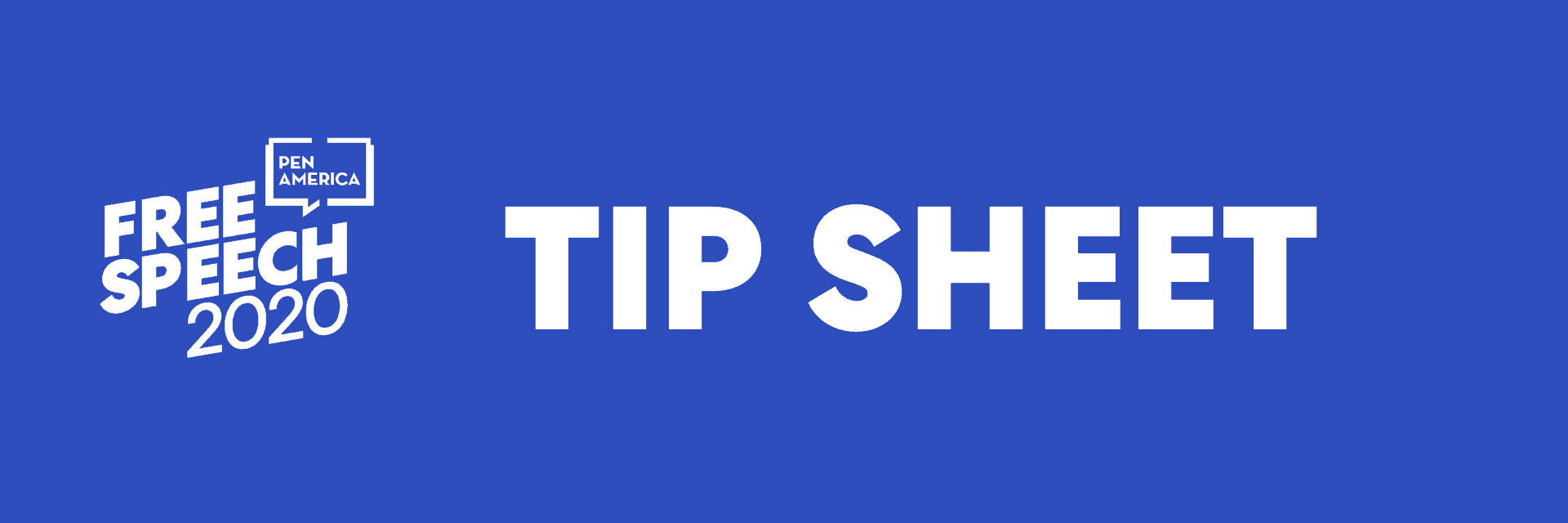Five Ways Political Campaigns Can Combat Online Disinformation in 2020

As the 2020 election approaches, disinformation tactics from both domestic and foreign actors are already underway. The intelligence community warned in late 2019 that foreign efforts have only grown more sophisticated since 2016. PEN America’s March 2019 report, “Truth on the Ballot: Fraudulent News, Midterm Elections, and Prospects for 2020,” warned against the normalization of fraudulent news and disinformation—defined as demonstrably false information presented as fact with the intent to deceive the public—as campaign tactics that threaten the concept of truth in public discourse.
These threats are emerging again. Certain segments of the population are microtargeted with false or manipulated content; fake social media accounts bombard feeds with fake information that has the potential to confuse and mislead voters; and some political ads contain demonstrably false content, while tech platforms are doing little to stop them. The result is a creeping distrust in our populace toward the electoral process.
Campaigns must proactively take steps to combat disinformation in 2020.
To that end, we offer five simple—but important—steps campaigns can take to defend against disinformation in 2020.
1. Publicly disavow creating or promoting demonstrably false and manipulated content
Campaigns should publicly pledge to refrain from creating, utilizing, or spreading disinformation. This must include publicly acknowledging when a campaign mistakenly shares or promotes news that turns out to be fraudulent or misleading, and denouncing the use of disinformation by supporters or allies.
2. Designate a campaign point person for combating disinformation
Campaigns should designate a point person for their efforts to combat disinformation. This individual would serve as liaison with the roster of disinformation experts described below, as well as with tech platforms, NGOs, the media, government actors, and others as needed.
3. Develop and consult a roster of disinformation experts
Campaigns should establish networks of experts on disinformation. They should then be in regular contact with these experts, in the same way that they regularly develop rosters of policy advisors. Having researchers and other experts on speed dial will better position campaigns to respond promptly and thoughtfully to disinformation in real time.
4. Train campaign staff and volunteers on how to identify election-related disinformation
Campaigns should, as part of existing orientations or trainings, train staff and volunteers—particularly those working on press relations or social media—on how to identify disinformation and best practices for fact-checking and sharing content online. Additionally, campaigns should provide mechanisms for staff to flag false or misleading election-related content to campaign leadership.
5. Promote responsible practices for identifying election-related disinformation to supporters
Campaigns should regularly communicate with supporters on how to identify false content, fact-check, refrain from sharing deliberately false or misleading content, and call out disinformation when they see it.
Stay up to date on what PEN America is doing to champion free speech and defend against disinformation during this election year.






